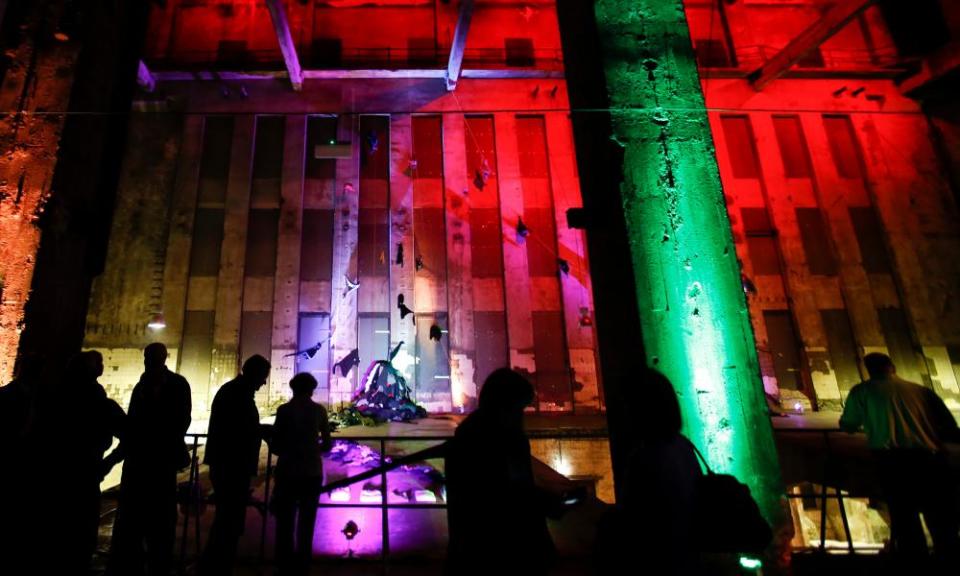Berlin nightclub Berghain opens to all for lockdown art exhibition

Berlin’s legendary Berghain nightclub will relax its notoriously strict door policy for art lovers from next month as the venue turns into a gallery while the German capital’s nightlife remains on hold because of the pandemic.
Berghain, housed in an old power plant on the border between the Friedrichshain and Kreuzberg districts, will from 9 September show works produced during the Covid-19 lockdown by 85 Berlin-based artists, including established figures such as Olafur Eliasson, Tacita Dean and Wolfgang Tillmans and younger names such as Shirin Sabahi, Christine Sun Kim and Sandra Mujinga.
Visitors will be able to book guided tours that will take them through the club’s 3,500-sq-metre premises, including the dancefloor and the Panorama bar.
The entrance fee will go towards supporting Berghain, one of 140 nightclubs in Berlin facing an uncertain future because of the pandemic.
In keeping with the club’s usual policy, visitors will be forbidden from taking photos inside the venue.
The show, called Studio Berlin, has been organised by but does not include works owned by the foundation of the art collector couple Christian and Karen Boros, whose collection is on display inside a former second world war air raid shelter in central Berlin.
Berghain’s door staff have a reputation for turning away punters who do not meet its standards. In a 2014 memoir, bouncer Sven Marquart explained that his job was all about fostering the “right mix”.
“I don’t mind letting in the odd lawyer in a double-breasted suit with his Gucci-Prada wife. If they make a good impression, let them in,” he wrote. “We also take guys in masks and kilts, or Pamela Anderson blondes in run-of-the-mill high-street outfits who tag along with bearded blokes, licking the sweat off each others’ armpits. That, for me, is Berghain.”
Curators said the exhibition would focus on “the studio as a space for contemplation and production”. While Berlin claims to be home to the highest density of studios and artists’ workshops in Europe, many artists have struggled to find outlets for their work as exhibitions and art fairs have been cancelled or postponed.
The collaboration between the nightclub and the art world is the latest creative attempt to preserve the infrastructure of Berlin’s nightlife during the pandemic. Some Berlin night-time venues with outdoor spaces, such as Klunkerkranich in Neukölln and ://about blank in Friedrichshain, have temporarily converted into beer gardens selling drinks and pizzas. Other clubs have held quiz nights or flea markets.
But while Berlin’s senate has paid out emergency funds of around €81,000 to a number of venues, organisers say they will struggle to keep paying their employees via the government’s part-time furlough scheme for much longer.
Berghain, once dubbed the “Berlin Philharmonic of electronic music”, shut its doors to protect visitors from the virus on 11 March, before authorities began enforcing closures by law. DJs have been playing sets in the adjacent beer garden since the start of August.

 Yahoo News
Yahoo News 